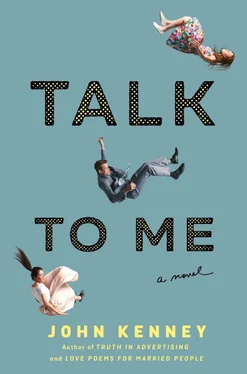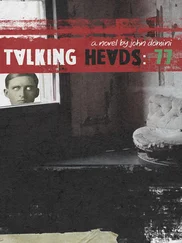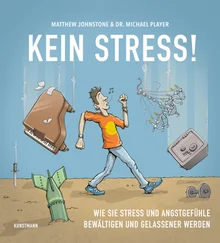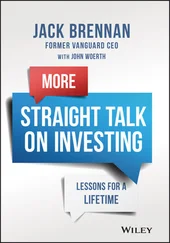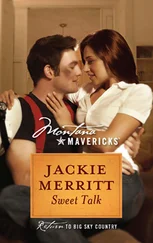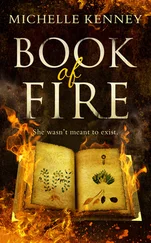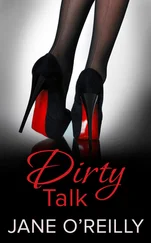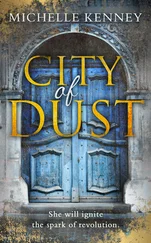He found a ski hat in the front closet, pulled it low on his head, and walked to the market, where he bought half a dozen eggs, a quart of milk, coffee, butter, and a can of Campbell’s Pork & Beans, along with a bottle of locally grown red wine.
A damp cold on the walk back, wood smoke in the air, still months before the crowds.
At home, he found dry wood in the mudroom and got a fire going. The main body of the house had been built in 1812. The rooms were small, the ceilings low. They’d taken down a wall to open the kitchen to the living room. He took down a saucepan and opened the beans, placed them on the burner on low heat. He took down a bowl and cracked three eggs, whisked them with a fork. He melted butter in another pan and opened the wine.
He poured the eggs in the pan and used a wooden spatula to move them around. Claire had taught him this. Move them around constantly or they will burn. The beans began to bubble and he turned the heat down to simmer. He turned to see the fire in the fireplace. It had caught well and was throwing heat. The kitchen was warm now, too. He would miss this place.
He sipped his wine and felt the first moments of happiness, until he remembered who he was and what had happened. Like the recent death of a close friend, it interrupted everything.
Eggs done, he moved them to a small plate and ladled out the beans next to them. A bit of salt and pepper. He brought the plate to the living room, by the fire, topping off his wine. He had never eaten food so good.
• • •
Ted opened his eyes and realized he must have dozed off briefly after eating. The fire had died down and the room was cold. He got up and put a few more logs in the fireplace, coaxed the fire back to life. He went in search of a sweater.
In the bedroom closet, he saw the boxes. He opened one and saw his clothes. In another his books. Claire had packed the things already. He rifled through one and found an old Patagonia fleece of his, pulled it on. He opened the lid to each box, saw more clothes and books; clothes he had long ago stopped wearing or forgotten about; polo shirts barely worn, cashmere sweaters, Ralph Lauren khaki pants, half a dozen pairs of shoes and a sweatshirt with the words “Sag Harbor” on it and baseball caps and belts and socks and dress shirts from Brooks Brothers and Paul Stuart. Thousands and thousands of dollars of clothing. Clothes he never remembered wearing or buying. What a waste. What an embarrassment of riches. Ted wanted none of it. He’d burn it. No. He’d have Claire give it away to the Salvation Army. More boxes and more clothes but in some there were papers. Old utility bills and bank statements and Fidelity Investments statements. Useless paper that spoke to a life he no longer remembered.
And there, among it all, a box marked Franny . Claire’s lovely cursive. Inside, a mess of photos and drawings from preschool, crude little stick figures, crazy large heads and three eyes and giant smiles. A big yellow sun in the corner. Mixed among them were vacation photos—Cape Cod and London and the Grand Canyon. Photos of Franny playing squash. Class photos and graduations. Ticket stubs from Rye Playland and Radio City Christmas Spectaculars and a Brearley kindergarten class photo.
Ted lifted the box and brought it into the living room. He put it on the stone in front of the fireplace, sat down to get close, to get warm. He poured himself another glass of wine, took out more photos from the box.
Claire, trying to hold back a smile, at the base of the Eiffel Tower, wearing a pale-yellow dress, tanned, her face so young, her hair long.
Claire with her arms around Ted’s mother and father, beaming, her belly full and round. This would have been Walt. His parents looking old but smiling. Claire’s head leaning toward his dad’s shoulder.
The Bedford house, Claire in the garden, when it was a tangle of weeds, dirt patches, the elderly couple whose children sold it to them having let the too-big place fall into disrepair.
And Franny. Franny and Claire. Franny on the beach and Franny by a Christmas tree and Franny and Claire in the snow, Claire pulling her on a sled, Franny pouting from the cold.
Here was Lucky, their first dog, a springer spaniel, sitting by Franny’s crib.
And there was Ted, in a rocking chair Claire’s parents had given them, Franny maybe three years old, footie pajamas, head leaning on his chest, Ted reading to her from a book.
A slim, tattered paperback. Harold and the Purple Crayon . Ted leafed through it. He knew it but hadn’t seen it in so long. It had to be fifty years old. Harold is maybe two, and he takes his purple crayon on a walk, drawing as he goes. A road, then a tree, then apples, then a dinosaur to protect the tree. But the dinosaur is too scary so Harold’s hand shakes, which makes the crayon draw waves, which Harold falls in. He draws a boat. And on and on. Until he draws a mountain to climb to find his room, his bed. Only he falls. He falls from the mountain.
He was falling, in thin air .
On those nights he was home in time to put her to bed, this was the final book, the one she needed to know it was time to go to sleep. She leaned in against him during these times, her breathing slowed, and by the end, her eyelids heavy, her large eyes glassy, she was ready. Ted would turn his head a bit and watch her, the long eyelashes floating up and down, deep in her own world now, aware Ted was there but also alone, until finally, her eyes would close and not open again, a perfect little round face at peace. His love for her at these moments was so profound as to be almost sad.
He put the book to his nose, sniffed it, the pages. A piece of notebook paper, folded, aged, slipped out. Ted opened it. Claire’s handwriting. A date in the upper corner.
January 12, 1992. Franny and Ted, at bedtime.
Ted: “When I think of you my heart gets this big.”
Franny: “When I think of you I turn my heart to happy.”
Had you come upon Ted in that moment, walked into the room and found him sitting among the papers, on the floor, by the fire, you would have wondered if he had frozen, Pompeii-like, permanently thunderstruck by the sheet of paper, the words, the memories, milky at first and then a mental high-pressure system moving through his fifty-nine-year-old mind, clearing the years and bringing him back to that nothing evening when he put Franny to bed.
How do we become the people we become?
January 1992 meant she was four. She’d been an early talker. Dressed herself. Potty trained early. Her need for them was desperate, all-encompassing. And yet there were times when her love was so outward and giving, so intense. She would take Ted’s face in both of her small hands, keep his head focused on her.
• • •
He put a parka on and a fleece beanie and walked out into the night, down by the harbor, largely empty save a few docked fishing boats. At this time of year you noticed the air, the quality of it, clean and salty, the kind that made you want to take a deep breath. So many stars away from the city.
There was a print he’d bought for Claire on the street in SoHo, years ago. A simple pen-and-ink drawing of a coffee cup. He knew Claire would love it. The look on her face when she opened it, when she tried not to smile, smiling all the more. A thing she did. His pride at her reaction. Such a small thing. This was the history of a marriage, too. She had hugged him. He remembered it, the feeling of it. To have her love. She hung it in the kitchen, on the wall near the table, the only picture on the wall, set off by the creamy oils of Benjamin Moore “eggshell” white (number 287).
Here were the images that floated through his mind as he walked, as the water lapped against the wood pilings of the pier, against the hulls of the boats, as the wind shifted, increased, caused a chill in him. The image of Claire removing the drawing from the wall and replacing it with something else. Removing all traces of him. Maybe a gift from Dodge would go there, instead. Something large and “happy.” Something he’d bought and flown to her in his plane. Not that that mattered. Ted’s gift, his now worthless little coffee cup drawing, would, in all likelihood, get boxed up and put in the basement, where it would be forgotten about, until years later, when Claire was forced to move from the too-large home and into a smaller apartment in town or close to Franny and her children. Ted would be long dead, having frozen to death on a park bench and not been found for days. Franny would have to go through the house. Perhaps she’d come across the print. A vague memory of it. Or not. Perhaps, instead, she’d look at it and think, What is this crap? So she’d put it, along with items like it, in a box and toss it into the back of her SUV or station wagon and drive it to Goodwill, where it would be bought by two young women starting a coffee shop in Brooklyn. They’d buy it for five dollars. Their coffee shop would fail within a year and the print would find its way into the trash, no memory of the gift it once was, of the expression on Claire’s face that day, of the home it hung in, of what had gone on there over the years, of their little family, long since over and gone, like it had never happened.
Читать дальше
